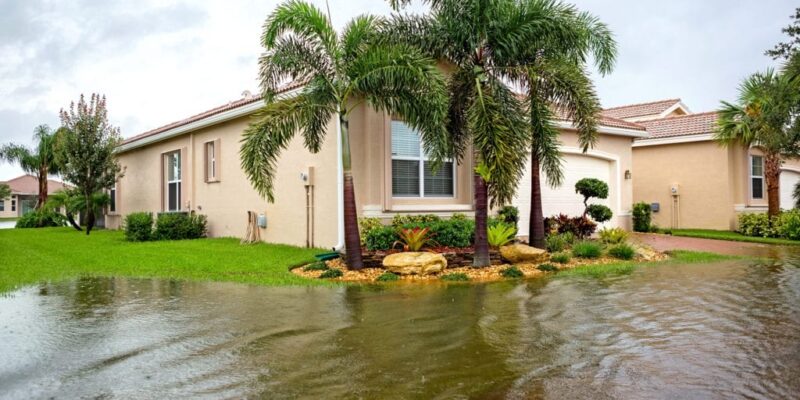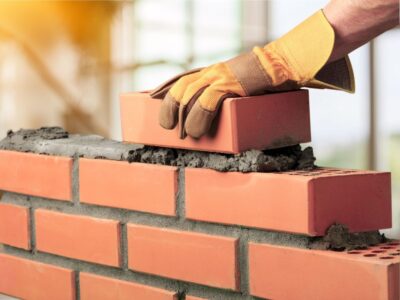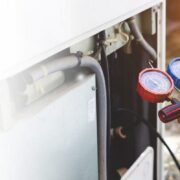Basement flooding can be a significant and costly problem for homeowners, especially in areas like Indianapolis where heavy rains and fluctuating weather conditions are common. Implementing preventative measures can help protect your home from water damage and maintain a dry, safe basement. Here are seven essential tips to prevent basement flooding in your Indianapolis home.
1. Maintain Your Gutters and Downspouts
One of the primary defenses against basement flooding in Indianapolis is a well-maintained gutter system and downspout system. Ensure that your gutters are clean and free of debris, allowing water to flow freely. Regularly inspect and clean your gutters, especially during the fall and spring when leaves and other debris are more likely to accumulate.
Properly installed downspouts should extend at least five feet away from your home’s foundation to direct water away. Consider installing downspout extensions or splash blocks to ensure that water is discharged far enough from the foundation to prevent pooling around the base of your home.
2. Grade Your Landscaping
Proper landscaping can significantly reduce the risk of basement flooding. Ensure that the ground around your home slopes away from the foundation. This grading helps direct rainwater away from your home rather than allowing it to pool around the foundation, which can lead to seepage and flooding.
If necessary, add soil to low areas around your home to create a gentle slope. Avoid planting water-intensive plants near the foundation, as excessive watering can contribute to soil saturation and basement leaks.
3. Install a Sump Pump
A sump pump is a critical tool for preventing basement flooding, particularly in areas prone to heavy rains and high water tables like Indianapolis. A sump pump is installed in the lowest part of the basement or crawlspace and automatically pumps out water that accumulates, directing it away from your home.
Ensure your sump pump is in good working condition by testing it regularly and performing routine maintenance. Consider installing a battery backup system to ensure the pump operates during power outages, which often accompany severe storms.
4. Seal Cracks in Your Foundation and Walls
Inspect your basement walls and foundation for any cracks or gaps that could allow water to seep in. Use a high-quality sealant to fill in any cracks or openings. For larger cracks or persistent issues, consider consulting a professional to assess and repair the damage.
Waterproofing your basement walls with a sealant or waterproof coating can also provide an added layer of protection against moisture intrusion. This step is especially important in older homes where the foundation may have settled and developed cracks over time.
5. Install a French Drain System
A French drain system can effectively prevent basement flooding by redirecting water away from your home’s foundation. This system involves installing a perforated pipe in a trench filled with gravel, which collects and channels water away from the foundation.
French drains are particularly useful in areas with poor drainage or where water tends to pool. They can be installed along the perimeter of your home or in specific problem areas to help manage water flow and prevent basement flooding.
6. Maintain Your Plumbing System
Regular maintenance of your home’s plumbing system can help prevent basement flooding caused by burst pipes, leaks, or sewage backups. Inspect your pipes for signs of wear and tear, and replace any that are damaged or corroded.
Consider installing a backwater valve in your sewer line to prevent sewage from backing up into your basement during heavy rains or flooding. Additionally, check and maintain your water heater and other plumbing fixtures to ensure they are functioning properly and not contributing to potential water issues.
7. Use Window Well Covers
Basement windows can be a common entry point for water, especially during heavy rains. Installing window well covers can help keep rainwater and debris out of window wells, reducing the risk of water seeping into your basement.
Choose covers that are durable and securely fit the window wells to provide maximum protection. Regularly check the condition of the covers and ensure they are free of cracks or damage.
By implementing these preventative measures, you can significantly reduce the risk of basement flooding and protect your Indianapolis home from water damage. Regular maintenance and proactive steps can help ensure that your basement remains dry and safe, providing peace of mind for you and your family.












Comments